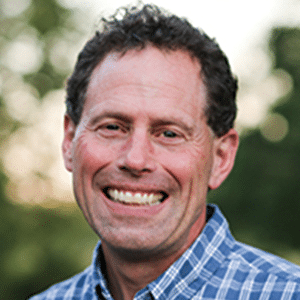From the CEO: Out of Control? Examining Worst Fears Can Provide Clarity, Confidence
My hair started to get curly in middle school, and I wasn’t too much of a fan because most of the other kids had straight hair. By ninth grade I almost had things under control. Every morning after my shower I would wear a wool hat until my hair dried. I’d take it off right before heading out to the bus stop so it would be straight. Of course it didn’t really work, as it would be straight up until the end of my hair, where a swooping curl would round out my entire head. Despite the continued failure I persisted with the practice, until one day when my older sister’s friends were over at our house. One of them said how she loved curly hair and how cute I was with curly hair. My 14-year-old brain processed this for about 30 seconds, and never again did I try to straighten my hair. I let my hair do what it wants, which also makes it a lot easier to get ready in the morning.
It is human nature to want to have control in our lives, both in the personal and professional worlds where we operate. Yet the pandemic has taught us that there are times when things are out of control, that sometimes we need to let go of the way we’ve always done things, and that it may be necessary to change. We can feel overwhelmed and confused in such chaotic situations, yet we can also find ways to adjust and to push through the challenges. I am reminded of the American theologian Reinhold Neibuhr’s saying: “God grant me the serenity to accept the things I cannot change, the courage to change the things I can, and the wisdom to know the difference.”
Cognitively, we all know we shouldn’t stress about things that are outside of our control, yet we do anyway. I’m thinking about the many sleepless nights I had the past eighteen months worrying about ACUI, our members, and the Central Office staff. Control is essentially based on our fears, so we try to control things because we are scared about what might happen if we don’t. My fears were rooted in the huge financial liability connected to our annual conference hotel, and the potential of members no longer having institutional support to attend programs and maintain their membership. To navigate overwhelming predicaments, we must assess our span of control and create a plan that mitigates the challenges, creates new opportunities, and influences positive outcomes; all while coping with the stress of the situation.
From an operational lens we have certain things in our jobs where we have some control, such as budgets we oversee, our daily schedule, and when we operated remotely, the home office environment we created. From a human lens, control often comes down to our own behavior. For example, while we were dependent on scientists to develop a COVID-19 vaccine, we all had control over own behavior to wear a mask and social distance.
One big challenge I see in managing our own behavior is to overcome the tendency to mentally jump to the worst-case scenario before anything has happened, known as ‘climbing the ladder.’ You’ve got yourself standing on the top rung when the reality is we’ve not yet left the ground. It’s easy to get so worked up about the anticipated failure that you can’t effectively plan next steps. This limits your ability to problem solve, to put your energy into creative solutions. One way to approach this mental block is to do a reality check on the worst-case scenario.
Dave Teske, ACUI’s chief financial officer, ran cashflow analysis reports when we were in the midst of pandemic-caused financial anxiety, which projected how long we would be able to operate before our funds were exhausted. While I didn’t want to think about a potentially insolvent ACUI, knowing that we could pay the bills for at least two years provided reassurance, and gave us the space needed to think strategically about the long-term success of the association. Increasing our delivery of online programs, establishing the Financial Assistance Fund, and examining our institutional membership model are all a result of understanding our worst fears, making changes to those things we can control, and keeping the big picture in mind.
There are many things in life where we have limited or no control, such as the spread of COVID-19, politics on our campus, and the history of our college union. However, we can better manage difficult situations by examining our worst fears to provide confidence and clarity to actively respond and implement necessary changes. As I look in the mirror and see less of my curly hair, I know the time will soon come for me to decide between maintaining the traditional comb-over of my receding hairline, or to confront my anxiety and accept some inevitable baldness. I don’t frequently see my sister’s friends anymore, so members are welcome to send me a message expressing the positive aspects of showing off less curly hair.

